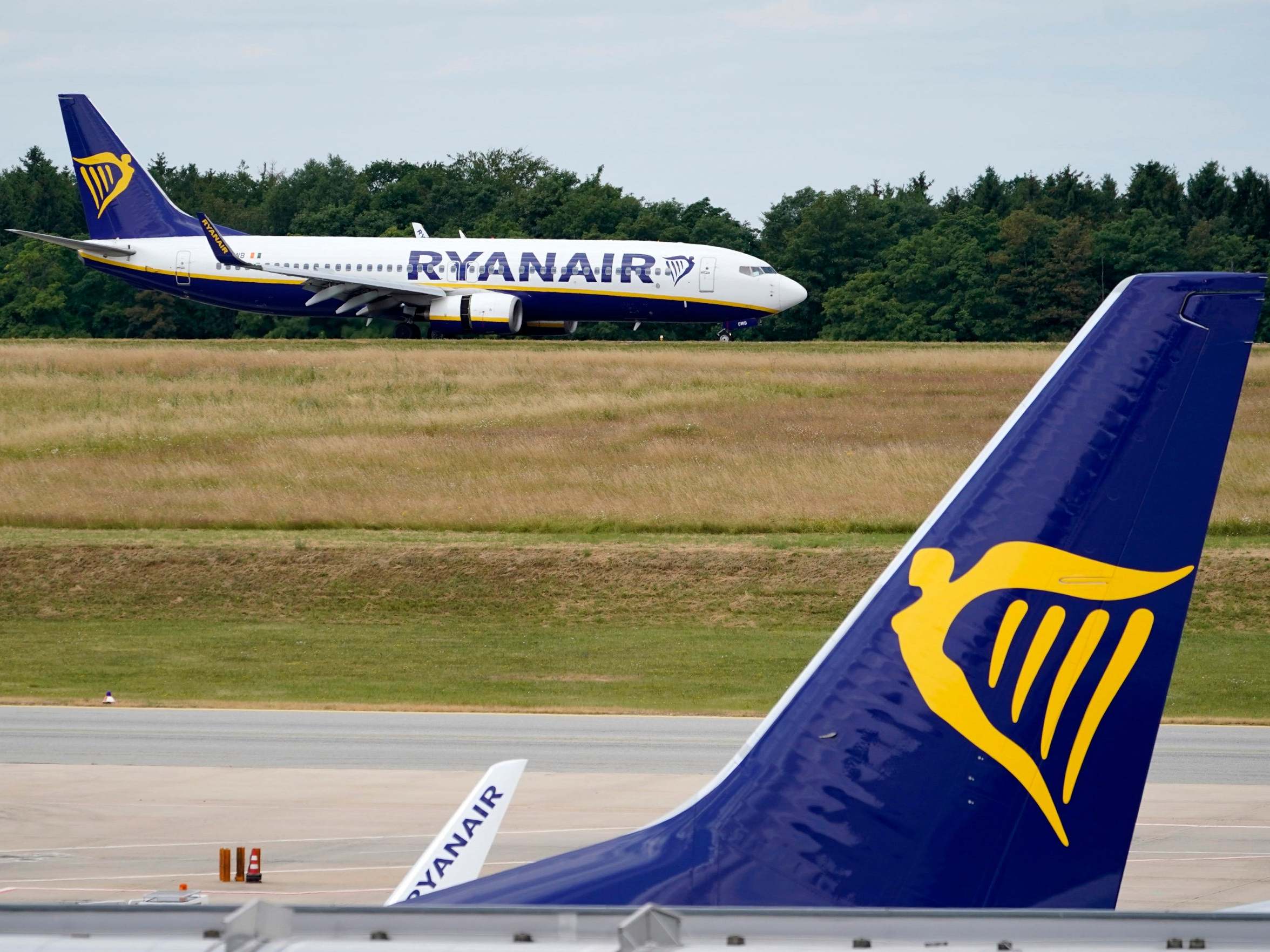Why it’s time for tighter rules on airline strikes
Plane Talk: The prospect of disruption on Ryanair is stressful and upsetting for many travellers

Your support helps us to tell the story
From reproductive rights to climate change to Big Tech, The Independent is on the ground when the story is developing. Whether it's investigating the financials of Elon Musk's pro-Trump PAC or producing our latest documentary, 'The A Word', which shines a light on the American women fighting for reproductive rights, we know how important it is to parse out the facts from the messaging.
At such a critical moment in US history, we need reporters on the ground. Your donation allows us to keep sending journalists to speak to both sides of the story.
The Independent is trusted by Americans across the entire political spectrum. And unlike many other quality news outlets, we choose not to lock Americans out of our reporting and analysis with paywalls. We believe quality journalism should be available to everyone, paid for by those who can afford it.
Your support makes all the difference.See you in court: that was the riposte by Ryanair to its pilots on Friday afternoon.
Next Thursday and Friday, 22 and 23 August, as well as on 2, 3 and 4 September (five of the busiest days of the year for returning holidaymakers), flight crew employed in Britain by Europe’s biggest budget airline are intending to strike.
The pilots’ union had invited Ryanair to talks this coming Monday, but instead the airline took a leaf out of BA’s book by challenging the ballot for industrial action on a legal technicality.
“Ryanair bully boy tactics puts travel plans at risk,” was how the British Airline Pilots’ Association (Balpa) put it on Friday afternoon.
“If they think they can legally bludgeon us and their pilots into submission they are wrong,” said Brian Strutton, Balpa’s general secretary.
“Ryanair passengers will be dismayed at the airline’s cavalier attitude that is putting their travel plans at risk.”
If I, as the proud holder of a booking from Stansted to Girona on 2 September, may speak on behalf of Ryanair passengers: that sentence can be improved by ending it at “dismayed”.
That an immensely profitable airline and a relatively well-paid group of workers should be putting half-a-million trips at risk is, well, dismaying. It’s good to talk, but in a negotiating room rather than the no-frills surroundings of a courtroom in the High Court in London.
Some passengers who have contacted the travel desk since the Ryanair strike are extremely relaxed: they are booked on UK-bound flights, and in no particular rush to return home.
They have merely wanted to confirm their rights: yes, if a cancelled flight leaves them grounded in Greece, Ryanair must book them a reasonable hotel and pay for all their dolamades and souvlaki until the airline can get them home.
But the vast majority of travellers whose journeys are jeopardised are stressed and anxious, because a great deal hangs on their flight plans. It may be imperative that they return on a certain date, or that (as in my case) the Ryanair flight is merely the first stage in a complicated and expensive itinerary.
Lots of people have asked whether they should book alternative trips now, often at considerable and quite possibly unnecessary expense, or risk their dream trips turning to nightmares as their itineraries unravel.
The answer I give is “No,” because of the European air passengers’ rights rules.
Ryanair is responsible for rebooking people on the swiftest possible alternative journey. If the airline tells me, with two or three days to go, that my flight is cancelled, then I must offer Ryanair the opportunity to provide a reasonable alternative the same day on its own “metal”. But if there are no seats, I’ll take a flight to Barcelona on easyJet or British Airways, thanks, and ask for the train fare to Girona too.
Will this play out exactly as the law demands? I fear not, at least not if hundreds of thousands of travellers are hit by the strikes. But if you give Ryanair the chance to do the right thing, and the airline does not, then book the alternative flight if you have the credit-card headroom, and be prepared for a battle to claim back the cost.
Which, I readily agree, is not a great prospect when all you want is a holiday.
So let me propose that, when a union announces industrial action against an airline, the carrier has to reveal its cancelled flights one week before the strike.
That will give the airline a wider window to secure alternative travel for the passengers affected – and conversely provide certainty for those who are assured their trips will be going ahead.
This is not about making it more difficult to strike: indeed, the airline world will hate the idea, regarding it as giving yet more power to the aviation unions – including the opportunity to wreak damage only to revoke the planned strike before it begins.
If you can think of a better plan, I would like to hear it. Meanwhile the joyful anticipation of travel has, for many, been chased away by nagging uncertainty.
Join our commenting forum
Join thought-provoking conversations, follow other Independent readers and see their replies
Comments